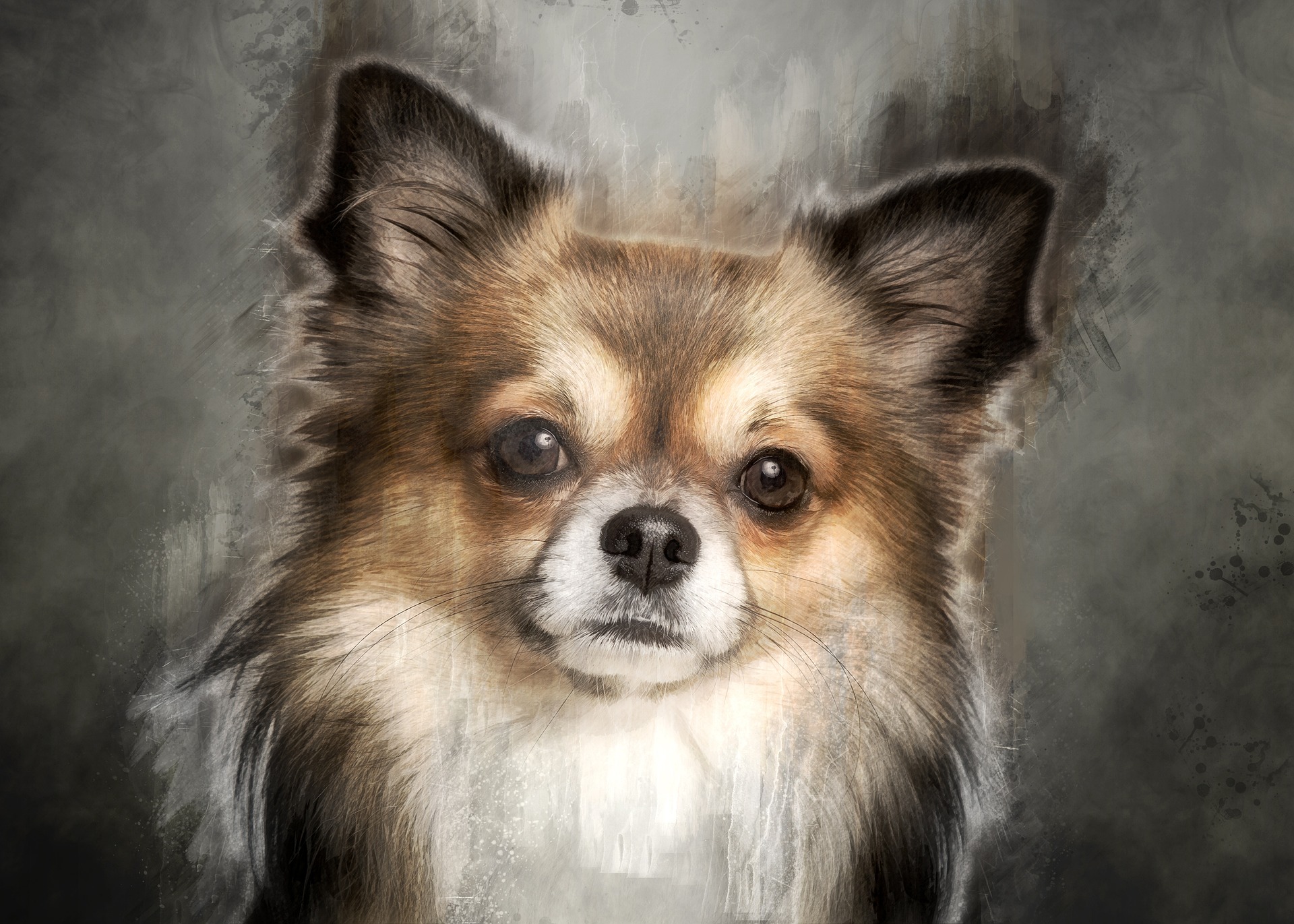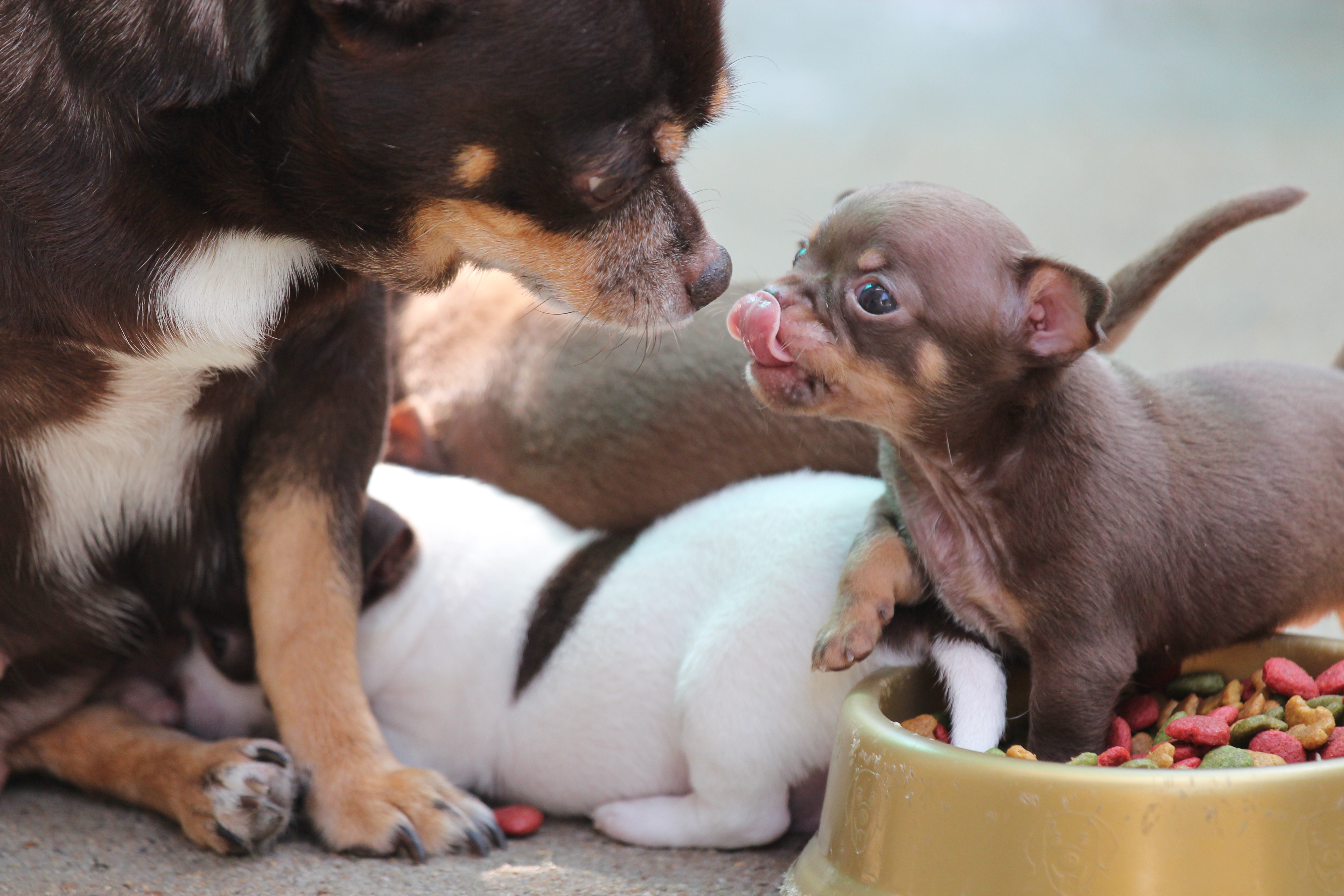Chihuahuas are one of the most popular breeds of dogs in the world. With their small size and friendly personalities, they make great companions. But what’s even more impressive is that Chihuahuas have a long lifespan – often living up to 15 years or longer!
But why do Chihuahuas live so long? What makes them different from other dog breeds? And how can owners ensure their pets stay healthy for as many years as possible?
In this article, we’ll explore these questions and more as we take a closer look at the longevity of Chihuahuas.
Factors That Impact a Chihuahua’s Lifespan

Although there is no surefire way to tell how long a Chihuahua will live, recent studies have shown that, with the right kind of care, the typical lifespan of a Chihuahua is between 15 and 20 years.
Chihuahuas and Yorkshire terrier, for example, outlive larger dogs like Labrador Retrievers and Mastiffs. The typical lifespan of a large or medium-sized breed is between 10 and 13 years.
So, why do Chihuahuas live longer? Let’s take a look at some of the factors that may affect their lifespan.
🐕 Genetics
One of the most predominant factors in a Chihuahua’s life span is genetics. Due to careful breeding over the years, many members of this breed have been selected for certain genetic traits that contribute to their longevity.
These include strong heart muscles, which help prevent heart failure; thick coats that protect them against extreme temperatures; and larger-than-average brains, which aid problem-solving abilities. All of these attributes can add years to your little pup’s life!
🐕 Size
Another factor that helps contribute to a Chihuahua’s long life is its small size. Tiny pups require fewer nutrients than bigger breeds, and they also tire more easily after exercise – both of which help keep them healthy and avoid potential health issues associated with being overweight or underactive. In addition, smaller dogs tend to suffer less from joint problems such as arthritis due to less pressure being put on their joints with each step they take.
🐕 Weight
Chihuahuas also live longer when they maintain a healthy weight. Being overweight or obese can put your pup at risk for many health issues, such as heart disease and diabetes, which can take years off their life. According to American Kennel Club standards, Chihuahuas should be 10 to 15 pounds for optimal health.
The best way to ensure your Chihuahua stays at a healthy weight is to feed them the proper amount of food that’s appropriate for their age, size, and activity level. In addition to diet, you should also make sure your pup gets plenty of exercises daily. Try taking them for strolls through the park or playing fetch in the backyard; this will help keep them active and burn off any excess calories!
🐕 Health Care
As always with any pet, proper care plays an important role in how long a dog lives. This means providing your pup with fresh water and food daily (ensuring it is suitable for its size), taking it for regular veterinary check-ups, keeping up with vaccinations and deworming treatments, and ensuring it gets adequate exercise and mental stimulation every day.
All these steps will not only increase your pup’s chances of living longer but also improve its quality of life during its time with you!
🐕 Spaying/Neutering
Spaying or neutering your Chihuahua is important to ensure optimal health and a longer lifespan. Spaying or neutering can reduce the risk of certain cancers, such as mammary cancer in female dogs, and reduce behavior-related issues, such as aggression and territorial marking. Furthermore, spayed/neutered pets live an average of one to three years longer than those not spayed/neutered.
🐕 Oral Care
Like most small breeds, Chihuahuas are susceptible to dental issues such teeth decay, tooth loss, and gum disease. According to some research, as many as nine out of ten Chihuahuas have dental issues. If you let your Chihuahua’s oral health go unchecked, its lifespan could be shortened. Gingivitis causes gums to bleed, which allows bacteria to enter the circulation and travel to vital organs like the heart and kidneys.
🐕 Gender
Studies have shown that female Chihuahuas live an average of two years longer than male dog. This could be due to several factors, such as female Chihuahuas being smaller and having less stress-inducing hormone fluctuations.
Other Longest Living Dog Breed

Chihuahuas have a long lifespan compared to other breeds, but they’re not the only ones who can boast of longevity. Here are some of the other longest-living dog breeds that will bring many years of joy into your home.
🐶 Australian Shepherd
Australian Shepherds top the list with an average lifespan of 12-15 years. Not only are these dogs incredibly intelligent and loyal, but their quality genetics and natural athleticism make them perfect for outdoor activities such as hiking and jogging. Their double coats protect them from extreme temperatures.
Therefore, you can enjoy all kinds of weather together! To maximize their health throughout their lifetime, provide plenty of daily exercise plus high-quality food with lean proteins and essential vitamins.
🐶 Poodles
Poodles come in many shapes and sizes, but one thing is consistent across the board – they all have remarkably long lifespans ranging from 10 to 18 years depending on size (Toy Poodle tend to live longer than Standard). These unique dogs are also known for being especially friendly.
They love spending time around people, making them excellent family pets! To keep them healthy, ensure they get plenty of regular exercise plus mental stimulation such as agility training or trips to the dog park.
🐶 Great Dane
Great Danes have an average lifespan ranging from 8-10 years, although some may reach spans up to 15! These giant pups may look intimidating at first glance, but don’t let appearances fool you – these gentle giants are quite calm and laid back, making them ideal for families with young children.
However, due to their large size, extra care must be taken when it comes to nutrition and exercising to avoid putting too much strain on their bodies.
🐶 Shih Tzu
Shih Tzus have an average lifespan of 10-18 years with proper care and nutrition. They’re beloved for their playful yet independent personalities and low-shedding coats, making them great for allergy sufferers or people who don’t want the hassle of grooming frequently.
As far as exercise goes, these charming little fluffballs enjoy short walks or even just running around indoors if that’s more convenient. Remember, these pups don’t need a lot of physical activity, so keep it light!
🐶 Jack Russell Terrier
The jack russell terrier is a small but spunky breed that often lives to be 14-16 years old. Their energetic personalities make them great for active lifestyles, and they love being around people. They require regular exercise to help keep their minds and bodies healthy, so make sure you take your jack russell terrier on plenty of walks and engage in playtime with them each day.
The World’s Oldest Chihuahua
The World’s Oldest Chihuahua, Megabyte, lived an incredible 20 years and 265 days. She passed away on January 1, 2014. This means that she was the longest-living Chihuahua in recorded history – a remarkable feat considering the average lifespan of a Chihuahua is between 12 and 20 years.
Megabyte was owned by Tom and Mary Tyler of Phoenix, Arizona, and was originally adopted from a local animal shelter at only six months old. The Tylers quickly noticed that Megabyte had an extraordinary personality. She loved to play with her toys and enjoy long walks in the park with her owners.
In addition to her playful nature, she also had remarkable intelligence, making her stand out from other Chihuahuas of similar age.
As Megabyte grew older, she developed some health issues like most senior dogs do, such as arthritis and weakened joints but with proper nutrition and care, she kept going strong well into her later years. Her diet consisted mostly of high-quality proteins like chicken or fish and healthy vegetables, including sweet potatoes, spinach, carrots, and broccoli florets -all rich in vitamins and minerals essential for longevity.
As a result of her balanced diet combined with regular exercise (even if it could just be a leisurely stroll around the block), Megabyte managed to stay slim throughout her life, which helped prevent any potential health issues associated with being overweight or underactive during old age.
Reasons Why Chihuahuas Live A Shorter Lifespan

While many of these little pups have long lifespans, there are some cases where their lives are tragically cut short due to a variety of factors. Here we’ll explore some of the most common reasons why Chihuahuas may suffer from shorter lifespans than other small breeds.
Genetics Disorder
As with any small breed, genetics play an important role in determining a Chihuahua’s lifespan. Poor breeding practices or not selecting for certain beneficial traits can lead to genetic disorders or complications that could shorten your pup’s life span by causing serious health issues or weakening vital organs. Be sure to do your research when choosing a breeder or adopting a pup to ensure they come from healthy stock.
Accidents
Due to their tiny size, accidents involving cars and other animals can be extremely dangerous for Chihuahuas – often leading to fatal injuries. This is why it’s important that these pups stay on a leash when outside and monitor closely when near potential hazards such as stairs and pools (they are the perfect size for falling through fence slats!).
In addition, always keep your furry friend away from strangers who may try to pick them up without permission – even if their intentions seem harmless!
Overheating
Another potential risk for chihuahuas is overheating because their thick coats make them less able to dissipate heat than other dogs. Therefore, it’s crucial that these pups only be taken out during cool times of day, kept away from direct sunlight, and given lots of water, so they don’t overheat in hot temps! If you notice your pup panting heavily, staggering, or having trouble walking, then it’s time to take them inside immediately before it gets worse.
Illness
Illnesses caused by viruses, bacteria, or parasites can also lead to shorter lifespans in Chihuahuas due to their sensitive immune systems. To prevent this risk as much as possible, make sure your pup is up-to-date on all vaccinations recommended by your vet and deworming treatments every few months (more frequent if needed). It would be best to watch for signs of illness, such as lethargy, patellar luxation, loss of appetite, and vomiting. Therefore, you can catch any problems early and intervene accordingly.
Tips for Giving Your Chihuahua a Long Life
If you’re the proud owner of one of these little charmers, you may be wondering how to give your pup the best care to ensure it lives a long and happy life. Here we’ll explore some tips that can help keep your Chihuahua puppy healthy and thriving.
✅ Nutrition
Proper nutrition is key in keeping any pet healthy and extending its lifespan. For Chihuahuas, this means choosing foods specifically tailored to their size and energy levels. Look for dog food brands that offer smaller kibble or pieces that are easier to chew, as well as high-quality ingredients designed to support joint health, immunity, and overall well-being. Additionally, you should keep portion sizes in check – these tiny pups don’t need much food!
✅ Exercise
Like all pets, exercise is important in keeping your Chihuahua’s body strong and healthy. Make sure your pup gets plenty of daily physical activity by taking them on walks or playing indoors with toys that encourage movement, like a ball or tug rope. And if possible, let them spend some time outside in the sun each day too. This will tire them out and provide some much-needed Vitamin D!
✅ Mental Health
We must remember our furbabies’ mental health when considering ways to extend their lives too. Mental stimulation is just as important as physical exercise, so make sure they have plenty of toys that can engage their minds, such as interactive puzzles or teething rings filled with treats (just make sure they’re suitable for your pup’s size).
Another great way to keep Chihuahuas mentally active is through regular grooming sessions where they learn how to stay still during brushing – many vets recommend doing this at least once a week, so get your brush ready!
✅ Veterinary Care
Finally, regular veterinary check-ups are essential for ensuring your Chihuahua stays healthy throughout its lifetime. Make sure you attend all recommended appointments so their vet can monitor your pet’s progress from puppyhood through adulthood.
During these visits, you should also discuss any past medical issues or vaccinations needed – this will help ensure your pup has the best chance at living a long and happy life with you!
Frequently Asked Questions
Q: What is the proper care for my long haired chihuahua?
A: Long-haired Chihuahuas require extra care to keep their luxurious locks looking good. This includes regular brushings and trimmings, as well as baths when needed.
Q: Do larger dogs live longer than smaller dogs?
A: Generally speaking, larger dogs have a longer lifespan than smaller breeds. This is due to their slower metabolic rate and the fact that they reach maturity at a later age. However, every dog is an individual, and proper care, regardless of size, will greatly impact how long your pup lives!
Q: What are the Chihuahua Club standards regarding a teacup chihuahua’s size?
A: The Chihuahua Club of America has set the standards for a teacup chihuahua to be 4-6 pounds when fully grown, with petite frames and shorter legs. Although their exact dimensions may vary depending on your pup’s breed, they should stay within this range.
Q: What factors affect the chihuahua’s lifespan?
A: Chihuahua’s life expectancy is largely dependent on the care they receive. Proper nutrition, regular exercise, mental stimulation, and veterinary checkups are all essential for keeping your pup healthy and maximizing its lifespan. In addition, genetics can also play a role in how long your pup lives.
Q: Do french bulldogs and german shepherd mixes live long?
A: The life expectancy of a French Bulldog German Shepherd mix can vary depending on genetics, but in general, they typically have an average lifespan of 9-13 years.
Final Words
Long-living pups come in all shapes and sizes, whether it’s a tiny chihuahua or a towering great Dane. Each breed has its own unique traits that can offer decades’ worth of fun companionship no matter your lifestyle preference! The key to a long and healthy life is providing your pet with the love, care, and respect they need. So get to know your pup’s needs and provide the necessary checkups, exercise, nutrition, and mental stimulation – it will be worth it in the end!
Here at ILoveChihuahua, we share our personal experiences as owners of this feisty breed. We talk about recommended methods, dog supplies picks, and advice on common Chihuahua problems. Our goal is to promote responsible dog ownership, so there would be fewer Chihuahuas in shelters.


